Introduction: Embracing Sustainability in Your Spring Garden
The gentle warmth of spring heralds the awakening of nature, beckoning gardeners to rejuvenate their landscapes with lush greenery and vibrant blooms. Amidst this season of renewal, a profound shift is taking place in gardens across the globe—a shift towards sustainable gardening practices. As climate change concerns intensify, gardeners are increasingly turning to eco-friendly fertilizers to reduce their environmental footprint while nurturing their plants to their fullest potential.

Eco-friendly fertilizers are revolutionizing traditional gardening methods, offering a cleaner, greener approach to lawn and garden care. Unlike conventional fertilizers that often contain harmful chemicals, eco-friendly alternatives harness the power of organic and natural ingredients to enrich the soil and promote healthy plant growth. By making mindful choices about fertilizers, gardeners can play a pivotal role in fostering Earth’s health, enhancing biodiversity, and creating sustainable ecosystems.
At Plantology, we are passionate about nurturing your passion for gardening while protecting the planet. Our range of plants and trees are not only beautiful but also sustainable, providing you with a guilt-free way to transform your outdoor spaces. Join us as we delve into the world of eco-friendly fertilizers, exploring their benefits, types, and how they can transform your spring planting experience into a sustainable success.
Understanding Eco-Friendly Fertilizers
Definition and Principles
Eco-friendly fertilizers are agricultural substances that promote plant growth without compromising the health of the environment. They work harmoniously with natural systems, minimizing ecological disruption while supporting soil vitality. These fertilizers are generally organic in nature, derived primarily from plant and animal matter, minerals, and microorganisms that occur naturally in the environment.
The Principles of Eco-Friendly Fertilizers
1. Sustainability
Sustainable gardening aims to create a self-maintaining garden ecosystem that reduces dependency on non-renewable resources. Eco-friendly fertilizers play an integral role in this balance by restoring soil nutrients in a natural cycle.

2. Reduced Chemical Impact
Eco-friendly alternatives to synthetic fertilizers are designed to minimize leaching and reduce chemical runoff, which helps in curbing water pollution. This ensures that aquatic ecosystems are not devastated by chemical overflow.
3. Soil Health and Fertility
Healthy soil is the backbone of a thriving garden. Eco-friendly fertilizers enrich the soil by increasing its organic matter content, enhancing microbial activity, and improving its structure and ability to retain water.
Benefits of Eco-Friendly Fertilizers
Environmental Benefits
Eco-friendly fertilizers not only prevent environmental damage but actively contribute to ecological restoration. They foster biodiversity by maintaining a natural habitat for beneficial organisms such as earthworms and pollinators, which are crucial for plant propagation.
Economic Advantages
While the initial cost of eco-friendly fertilizers may be higher compared to synthetic ones, they are cost-effective in the long term. By improving soil health, they reduce the need for additional soil amendments and pest control measures, leading to savings over time.
Improved Plant Health
Plants nourished with organic fertilizers are often healthier and more resilient to diseases, pests, and adverse weather conditions. The balanced nutrients provided by eco-friendly fertilizers can lead to vigorous growth, enhanced blooming, and increased yield.

Enhanced Soil Structure
Regular use of eco-friendly fertilizers improves soil tilth, making it more aerated and better at water retention. This promotes root growth and reduces issues related to soil erosion and compaction.
Types of Eco-Friendly Fertilizers
Compost
What is Compost?
Compost is decomposed organic matter that is used as a natural fertilizer in gardens. It is created from a mix of kitchen scraps, garden waste, and other biodegradable materials that break down over time.
Benefits of Compost
Rich in nutrients, compost acts as a slow-release fertilizer. It harbors beneficial microorganisms that convert organic material into plant-available nutrients, increasing the fertility of the soil while enhancing its structure.
Manure
Understanding Manure
Derived from animal dung, manure is a traditional fertilizer that has been used for centuries to nourish gardens. It is typically aged to reduce the presence of harmful pathogens and increase nutrient availability.

Benefits of Manure
When used appropriately, manure can improve the water-holding capacity of soil, introduce essential nutrients like nitrogen, phosphorus, and potassium, and boost microbial activity.
Bio-fertilizers
What are Bio-fertilizers?
Bio-fertilizers consist of living microorganisms that enhance nutrient availability in the soil. These fertilizers can be bacteria-based, fungi-based, or algae-based and are often used to fix nitrogen or solubilize phosphorus.
Benefits of Bio-fertilizers
By naturally increasing nutrient uptake, bio-fertilizers can reduce the need for chemical fertilizers. They improve plant growth by augmenting root development and enhancing resistance to stress conditions.
Choosing the Right Eco-Friendly Fertilizer for Your Plants
Soil Testing and Analysis
Before selecting a fertilizer, consider testing your soil to determine its nutrient levels and pH. Understanding the deficiencies or surplus of certain nutrients can guide you in choosing a suitable fertilizer that will fulfill your garden's specific needs.
Plant-Specific Needs
Different plants have varying nutrient requirements. By understanding the type of plants you’re growing, you can select a fertilizer that caters to their unique needs. For instance, nitrogen-rich amendments are ideal for leafy vegetables, while phosphorus and potassium are excellent for flowering plants.

Explore our selection of Adonidia Palms, available in stunning single, double, and triple trunk variants, perfect for creating lush tropical landscapes. Ensure their vibrant growth by choosing the appropriate organic fertilizer that complements their specific requirements.
Application Techniques
Top-Dressing
Applying fertilizers on the soil surface allows gradual absorption of nutrients as they are incorporated with natural rainfall or irrigation. This method is effective for matured plants and is less intrusive.
Sidedressing
Sidedressing involves applying granulated or liquid fertilizers alongside growing plants, fostering prompt nutrient uptake. This technique is ideal during critical growth phases or when quick corrections are needed.
Incorporation
Mixing fertilizers directly into the soil during planting prepares the garden bed with enriched soil, ensuring evenly distributed nutrition right from the start.
How to Transition to Eco-Friendly Fertilizers
Start Small
Begin with a small section of your garden to experiment with different eco-friendly fertilizers. Observe the growth and health of the plants and make necessary adjustments before expanding to other areas.

Educate and Adjust
Educating yourself on the nutrient needs of your specific plants and how they respond to eco-friendly fertilizers will guide further adjustments to application rates or types of fertilizers used.
Monitor Progress
Regularly monitoring the growth, appearance, and productivity of your plants will help you assess the effectiveness of eco-friendly fertilizers. Note any improvements in the blooming and resistance against pests.
For a complete transformation of your garden into a sustainable paradise, explore our Silver Bay Aglaonema, a plant that thrives with the nurturing touch of eco-friendly fertilizers. Visit Plantology for the latest selections designed to elevate your sustainable gardening game.
Plantology’s Commitment to Sustainability
Why Choose Plantology?
At Plantology, our commitment to sustainability is woven through every aspect of our business. From sourcing the most sustainable plants to advocating for environmentally-friendly practices, we are dedicated to enabling our customers to create green spaces that benefit the world.
Our Product Range
We offer a diverse selection of plants like Agapanthus Lily of the Nile and various Agave species, each chosen with care to thrive in eco-friendly environments. Our plants are sourced to ensure minimal environmental impact, allowing you to cultivate a garden that you can be proud of.

Promoting Eco-Conscious Gardening
Join us on the journey to sustainable gardening, where every choice contributes to a healthier planet. By selecting eco-friendly fertilizers and products from Plantology, you are participating in a movement towards more biodiverse, resilient, and vibrant landscapes.
Take the first step today by visiting Plantology’s online store to discover a wide range of sustainable plant options perfect for your spring planting endeavors.
Conclusion: Cultivating a Greener, Healthier Future
The journey towards sustainable gardening begins with small, conscientious choices that collectively contribute to a larger environmental impact. By opting for eco-friendly fertilizers and making informed decisions, gardeners play a crucial role in restoring our ecosystems and fostering biodiversity.
With Plantology as your partner, your spring planting can be a celebration of life and a testament to your commitment to the planet. Explore our extensive range of plants and eco-friendly products, and let’s create beautiful gardens that nourish the soul and the Earth. Visit Plantology’s store for all your gardening needs and embark on a rewarding and sustainable gardening journey today.
Detailed Insights into Different Types of Eco-Friendly Fertilizers
Bone Meal
What is Bone Meal?
Bone meal is an organic fertilizer made from the crushed bones of animals, typically cattle. It is rich in phosphorus and calcium, making it a superb choice for encouraging flowering and fruiting in plants. Bone meal releases nutrients slowly, making it a long-lasting amendment for gardens.

Advantages of Using Bone Meal
By supplying essential phosphorus, bone meal supports root development and aids in blooming. It enhances the strength of budding plants, ensuring a vigorous start. Furthermore, calcium in bone meal can help to rectify soil deficiencies, promoting overall plant health.
For those growing flowering plants, using bone meal can enhance their blooms' size and color, making it an excellent choice for garden enthusiasts aiming for vibrant displays.
Seaweed Fertilizers
What are Seaweed Fertilizers?
Derived from various types of marine algae, seaweed fertilizers are rich in trace nutrients and natural growth hormones. These fertilizers come in liquid or powdered forms and are applied for their ability to stimulate growth without causing harm to the soil or plants.
Benefits of Seaweed Fertilizers
These fertilizers are known for their versatility and ease of absorption. They promote disease resistance, bolster plant vigor, and enhance seed germination rates due to their wealth of micronutrients and growth-promoting hormones. Additionally, seaweed fertilizers do not require soil incorporation, making them easy to use as foliar feeds or soil drenches.
Ideal for vegetables and high-yield crops, seaweed fertilizers can also encourage root growth and enhance plant resilience against environmental stressors.
Green Manures
What are Green Manures?
Green manures involve planting cover crops that are grown not for consumption but to be cut down and incorporated into the soil. These crops, often legumes or grasses, are grown to add organic matter and nutrients back into the soil.

Why Use Green Manures?
Green manures improve soil structure, increase organic matter content, and fix nitrogen in the soil. As they decompose, they help to maintain soil fertility and reduce the need for chemical fertilizers. These cover crops also suppress weeds and prevent soil erosion, making them an instrumental part of sustainable agricultural practices.
They are particularly beneficial for large garden plots or farms using organic methods and are an effective way to maintain fertility in a rotation system.
Implementing Eco-Friendly Practices in Your Garden
Integrating Companion Planting
Companion planting is a strategic method of arranging plants in your garden to support their mutual growth. By planting certain combinations, you can naturally deter pests, enhance nutrient uptake, and maximize garden productivity.
For example, planting marigolds near vegetables can deter nematodes, while legumes can fix nitrogen, benefiting leafy greens planted nearby. Such synergies reduce the need for chemical interventions, promoting a balanced ecosystem naturally.
Utilizing Mulching Techniques
Mulching involves covering the soil with organic materials such as straw, wood chips, or compost. This practice conserves moisture, suppresses weeds, and gradually enriches the soil as the mulch decomposes.
Mulching not only contributes to healthier soil but also reduces the need for frequent watering and weeding, saving time and resources while encouraging robust plant growth.

Rainwater Harvesting Systems
Implementing rainwater harvesting systems can significantly diminish your garden's reliance on municipal water. Collecting rainfall and using it for irrigation helps conserve water while maintaining a constant supply for your garden's needs.
Incorporating barrels or more sophisticated systems allows you to tap into this sustainable resource, aligning your gardening practices with environmental conservation goals.
Creating Wildlife Habitats
Foster biodiversity in your garden by creating habitats that support a range of wildlife. Birdhouses, bee hotels, and native plantings can attract beneficial creatures, from pollinators to predatory insects.
These additions contribute to a balanced ecosystem, where natural pest control reduces the need for chemical pesticides, creating a self-sustaining garden environment.
Exploring Plantology's Exclusive Sustainability Programs
Garden Education Workshops
Plantology offers a series of workshops aimed at educating gardeners of all levels about sustainable practices. From composting techniques to soil health management and natural pest control, our workshops are designed to empower you with the knowledge to make environmentally conscious choices.
Join our community events and gain hands-on experience in transforming your garden into an eco-friendly haven.

Sustainability Products Initiative
Our sustainability products initiative ensures that every product you purchase from Plantology has been evaluated for its environmental impact. Our selection includes not only sustainable plants but also eco-friendly gardening tools and supplies that support your green practices.
Explore our line of recycled garden tools and biodegradable plant containers that offer an eco-conscious alternative to conventional gardening supplies.
Community Green Spaces
Plantology advocates for community involvement in creating green spaces that improve local environments. We collaborate with local schools, community gardens, and urban farming projects to spread the benefits of sustainable gardening.
By fostering a sense of community around these green projects, we aim to inspire collective efforts towards environmental stewardship and sustainability.
Conclusion: A Lifelong Commitment to Green Gardening
The transition to sustainable gardening is a rewarding journey that benefits not only our immediate environments but the planet at large. Eco-friendly fertilizers are your gateway to this journey, offering a sustainable alternative to chemical-dependent gardening practices.
Plantology is committed to supporting your endeavors, providing you with the resources and inspiration to cultivate a garden that nourishes both body and soul. As you embrace eco-friendly fertilizers and sustainable practices, you pave the way for a greener future where gardens are sanctuaries of life and biodiversity.

Join us today in creating a world where every garden is a testament to sustainability and a healthier Earth. Visit Plantology and let’s sow the seeds of a sustainable tomorrow together.

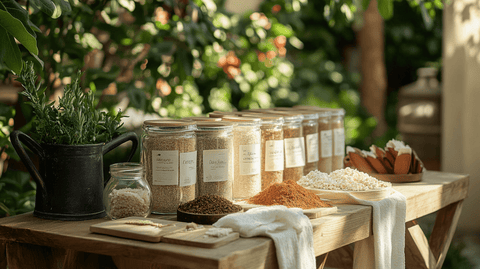


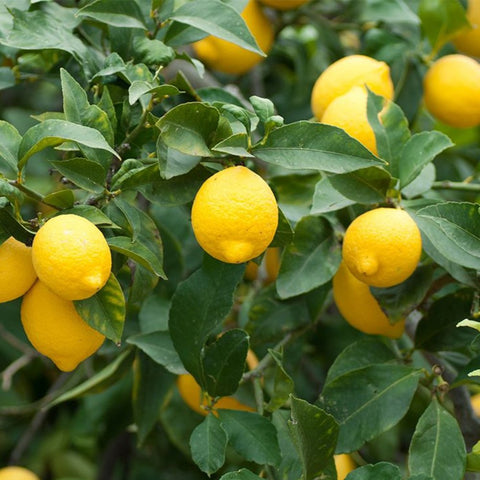



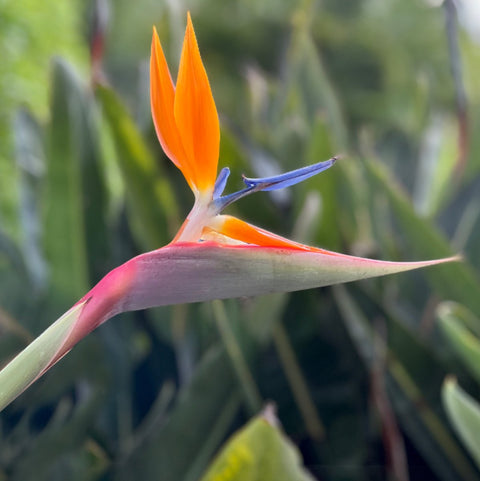








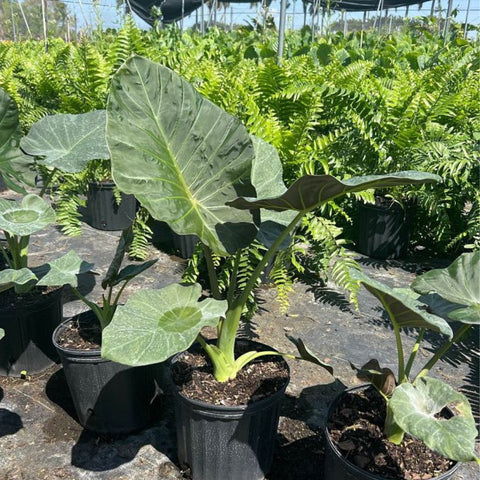







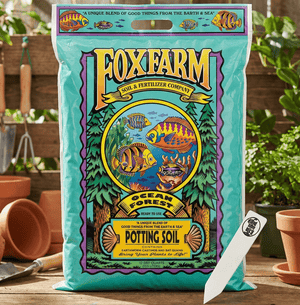




Comments (0)
There are no comments for this article. Be the first one to leave a message!